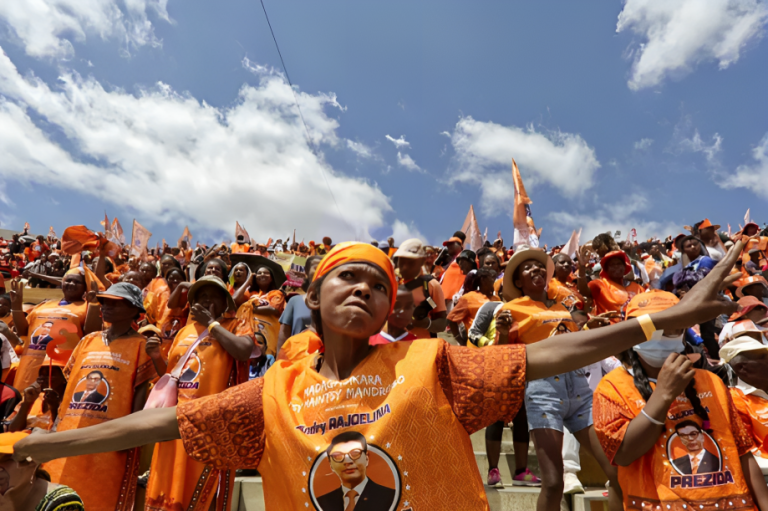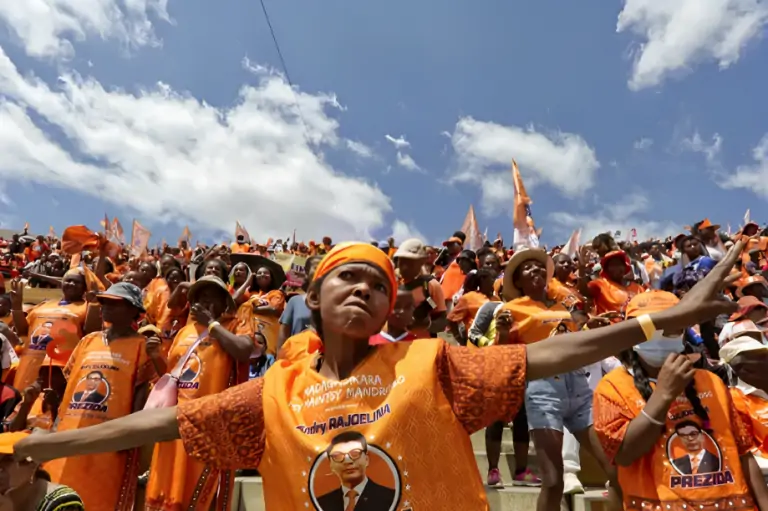

madagascars presidential election amidst opposition boycott
Madagascar’s presidential election proceeded despite significant opposition boycotts, stirring turmoil and raising widespread concerns about the election’s fairness and President Rajoelina‘s leadership tenure. The island nation, known for its political volatility since gaining independence from France in 1960, faced another episode of upheaval amid this crucial electoral process.
The decision by most opposition candidates to abstain from participating in the election stemmed from deep-rooted doubts about the legitimacy and fairness of the electoral process. In the run-up to the election, protests became a common occurrence in the nation’s capital, with tense moments and the use of tear gas by law enforcement to disperse protesters. The opposition’s accusations centered on Rajoelina’s administration’s alleged attempts to manipulate the electoral process in its favor.
President Rajoelina’s firm dismissal of concerns about the election’s credibility amplified the controversy surrounding the electoral process. His administration faced severe allegations from the opposition, claiming that they were deliberately undermining the polls to consolidate power. Accusations of’sabotaging” electoral integrity added fuel to the escalating tensions between the ruling party and its adversaries.
Amid Rajoelina’s campaign highlighting infrastructural developments achieved during his tenure, a growing segment of the population expressed concerns that their immediate survival outweighed political outcomes. This sentiment underlined a broader dissatisfaction with the government, signaling a disconnect between the administration’s achievements and the everyday realities faced by Malagasy citizens.
The controversy surrounding reports of President Rajoelina obtaining French nationality in 2014 stirred unrest, triggering debates about the legalities impacting his eligibility to govern. Following his resignation, an ally temporarily took over, which stoked opposition sentiments and created an atmosphere of unease.
Allegations of voter bribery and irregularities served as the primary reasons behind the opposition’s steadfast refusal to engage in the electoral process. Their commitment to ongoing protests aimed at demanding fair and transparent elections remained resolute. Meanwhile, international observer missions continued their vigilant monitoring to ensure an unbiased electoral process despite the challenging circumstances.
The Somali president supports their military forces to eliminate the threats from Al-Shabaab, ISIS, and Al-Qaeda. The Somali National Army…
UAE President Sheikh Mohamed bin Zayed Al Nahyan held talks with President Faustin Archange Touadéra of the Central African Republic…
African football teams struggle intensely in the World Cup Qualification rounds to earn their place on the international football stage.…
The journey toward the 2026 FIFA World Cup is rapidly intensifying for all African teams, who now hold a historical…
The cricket authority in Zimbabwe will organize matches between top international teams in a major cricket event expected to succeed…
In 2025 the South African Social Security Agency (SASSA) announced its designated dates for social grant payments that benefits millions…
This website uses cookies.